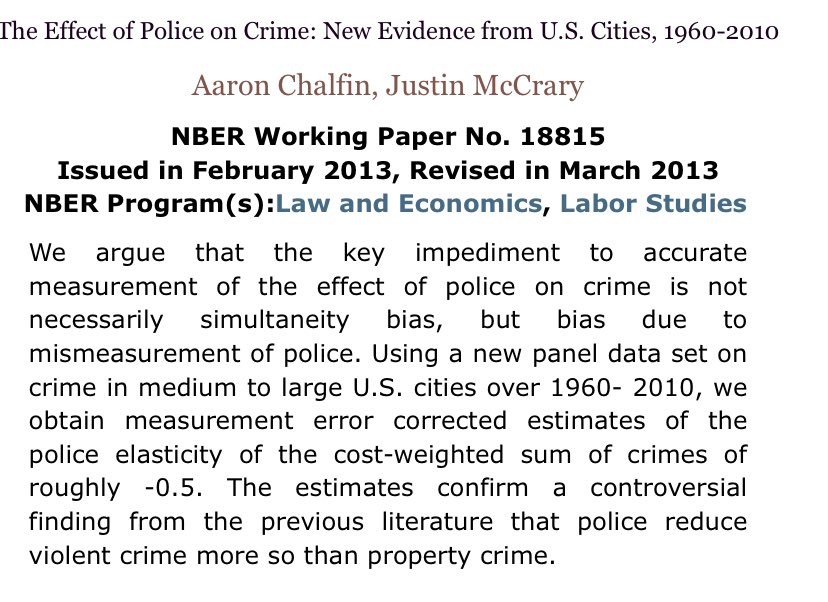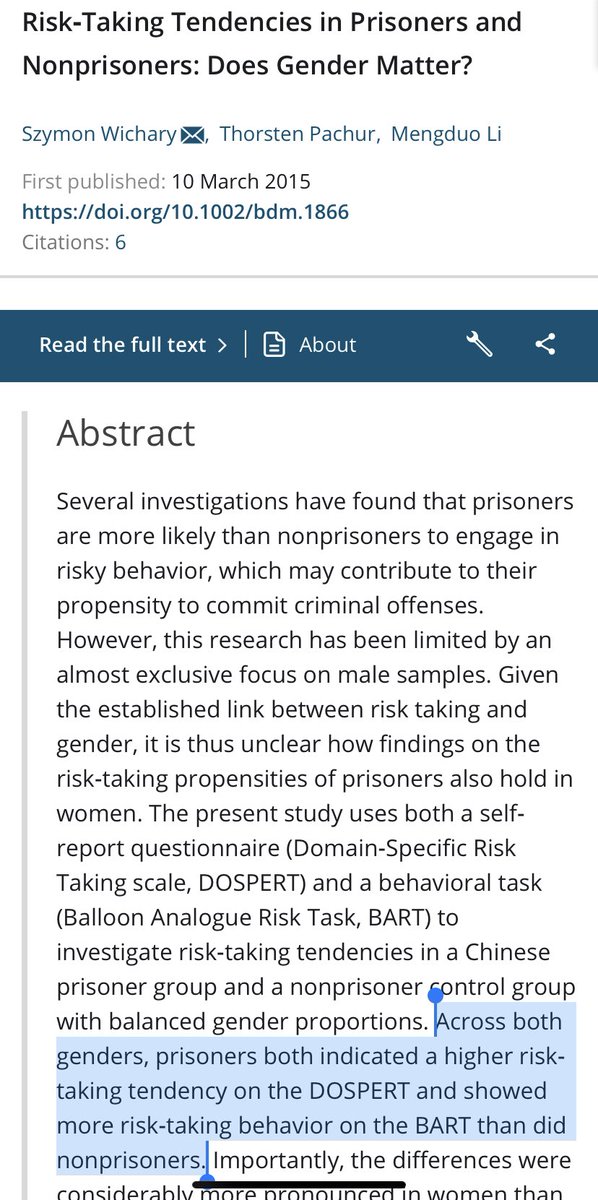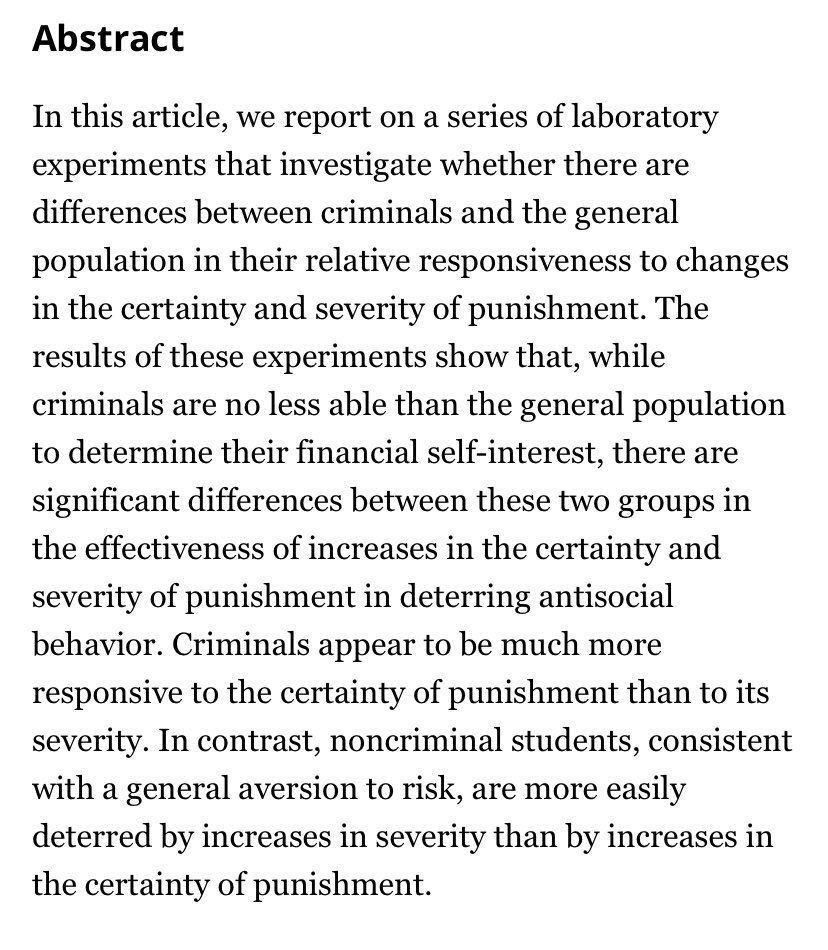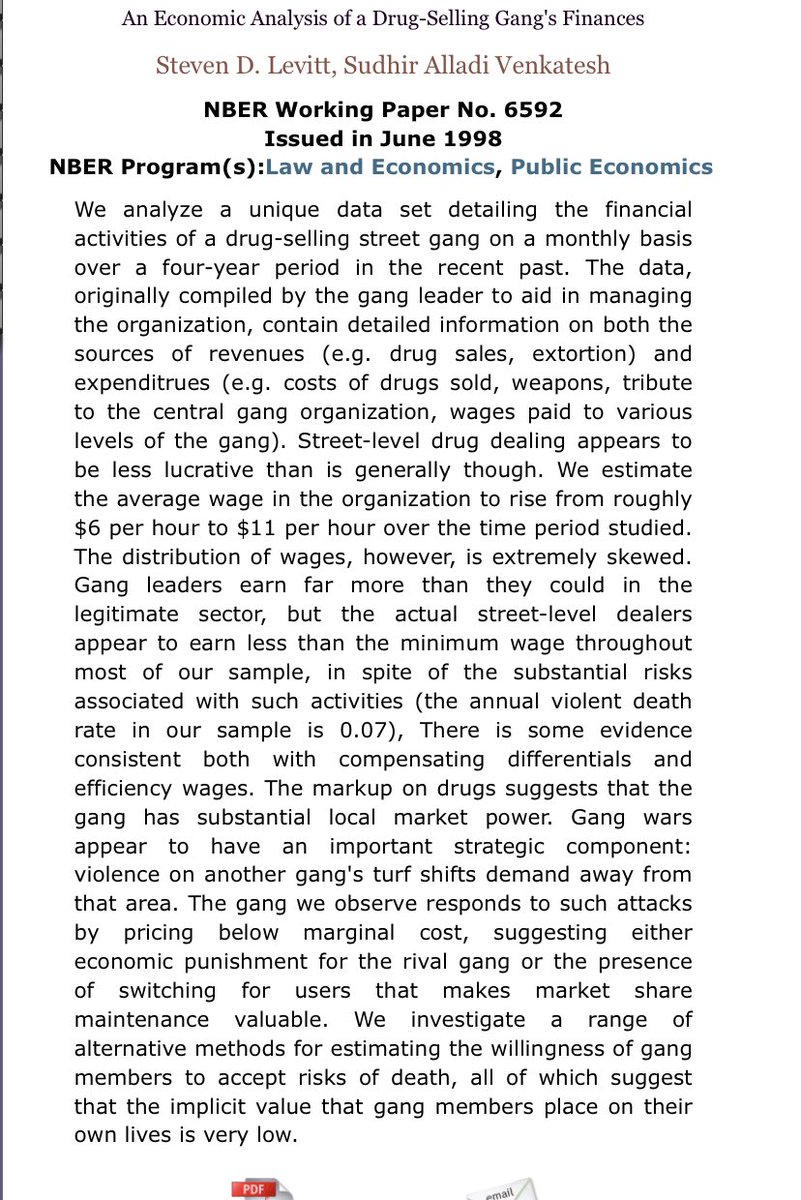This new paper plus recent twitter debate on Becker’s crime model made want to do a quick thread on how Becker stands up to the data. The way I see it, his paper has 4 empirically testable predictions. Lets go. https://twitter.com/remylevin/status/1298792517924786182">https://twitter.com/remylevin...
#1. "Criminals can be deterred from committing crimes (especially by increasing probability of getting caught).” Check. See above, but could also check lit on effect of policing on crime. https://www.nber.org/papers/w18815 ">https://www.nber.org/papers/w1...
#2. "Criminals will have different risk preferences than nonoffenders (risk loving instead of risk averse)." Check. https://onlinelibrary.wiley.com/doi/abs/10.1002/bdm.1866">https://onlinelibrary.wiley.com/doi/abs/1...
#3. "Because criminals are risk loving, they will be more responsive to changes in probability of getting caught than changes in severity of punishment." Check. https://www.journals.uchicago.edu/doi/abs/10.1086/467954">https://www.journals.uchicago.edu/doi/abs/1...
#4. "If criminals are risk loving, they will engage in crime even when it doesn& #39;t pay (Risk Premium<0), unlike risk averse nonoffenders." Check. Street level drug dealers get paid less than minimum wage. https://www.nber.org/papers/w6592 ">https://www.nber.org/papers/w6...
4/4. Not bad for a model @ATabarrok called Becker’s biggest mistake. :) Obv, this thread is a bit tongue in cheek. Each paper has its own pros & cons. Plus no single paper can speak for an entire literature. But maybe its enough to get Becker skeptics to give his mode a 2nd look?
For context of previous EconTwitter debate on crime model, see: https://twitter.com/dedubyadubya/status/1295823890820861954">https://twitter.com/dedubyadu...

 Read on Twitter
Read on Twitter





